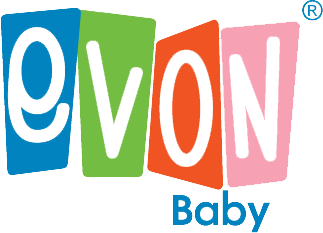Signs Of Your Baby’s Hunger and Fullness

Signs Of Your Baby's Hunger and Fullness
New mothers are confused about motherhood in knowing whether their infants are hungry or not, and they do not have enough experience to know this, as some mothers depend on a feeding schedule, but this is suitable for artificial feeding only, and is not suitable for breastfeeding, and if you Breastfeeding your baby naturally It is preferable to breastfeed on demand and not on time, as the baby suffers from cramps in his stomach when he is hungry, which leads him to cry hysterically, so you must respond to the signs of your baby’s hunger before he starts crying, find out in this article what they are Signs of a baby's hunger, as well as signs of a baby's fullness, to make sure that your baby is getting his food properly.
What Are the Signs of Infant Hunger?
These are the signs that your baby is hungry:
- Waking up with insomnia: Your child wakes up when he is hungry, and moves in his crib in an insomnia, moving his mouth and raising his hands to his face.
- Finger sucking: When your baby is hungry, he puts his hands in his mouth and sucks on his fingers, sucking on his lips and tongue.
- Turning: When your baby is hungry, he turns his head left and right.
- Searches for your breasts: When you hold your baby while he is hungry, he automatically directs himself to your breasts and grabs them.
- Make sounds: Your baby sighs when he's hungry, or makes small tones that you know he's hungry.
- Opening the mouth during feeding: When you bring your breasts close to your baby's mouth while he is hungry, he picks it up eagerly, and opens his mouth frequently during feeding.
- Smiling: You know your baby is hungry when he looks at you and smiles while feeding.
- Crying: Your baby cries when he is hungry, and the hunger cry is usually short and low or high depending on the severity of his hunger, but you should know that crying is one of the late signs of hunger.
Baby Fullness Signs
These are the signs that your baby is full:
- Closing lips: When your baby is full, he presses his lips together, as if saying, "I don't need more."
- Turn away: When your baby is full, he moves his entire head away from your breasts, and he should not be forced to feed at that time.
- Stop sucking: When your baby feels full, he stops sucking on your nipple or his fingers.
- Nipple spitting up: When your baby is full, he will spit up your nipple, often feeling sleepy and falling asleep.
- Distraction: When your baby is full, he turns his face and gets distracted by things around him.
Does The Baby Need to Be Woken Up for Feeding?
The idea of waking a hard-sleeping baby for feeding seems strange to some mothers, and here's the truth:
- Doctors recommend waking the baby to breastfeed him in the first months of his life, if he has been sleeping for more than two hours continuously, or even if he fell asleep during breastfeeding and did not complete his feeding.
- The child after birth needs breastfeeding to grow, nourish and increase in weight, as it is his only recourse to obtain nutrition at that time, after leaving the mother’s womb, and if he remains for more than two hours without breastfeeding, this may affect his weight, growth and development of the rest of his body parts, because his stomach. Your newborn baby is very small and, as she fills up quickly, is digested and becomes empty quickly, and needs to be filled again.
- If you want to avoid waking your baby from a hard-earned sleep, you can breastfeed him while he is sleeping, but you have to make sure that he sucks and swallows the milk well.
- There are many rumors regarding the relationship between breastfeeding during sleep and ear infection. As for breastfeeding, the matter does not carry any danger. With regard to ear infection in the infant as a result of breastfeeding during sleep, but with regard to artificial feeding or through a bottle, you must be careful While breastfeeding your baby, and choosing the correct position for feeding during sleep.

